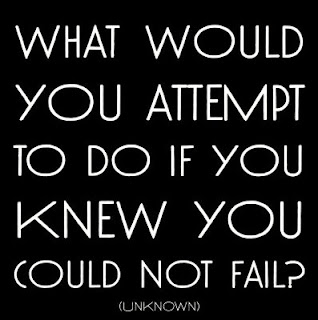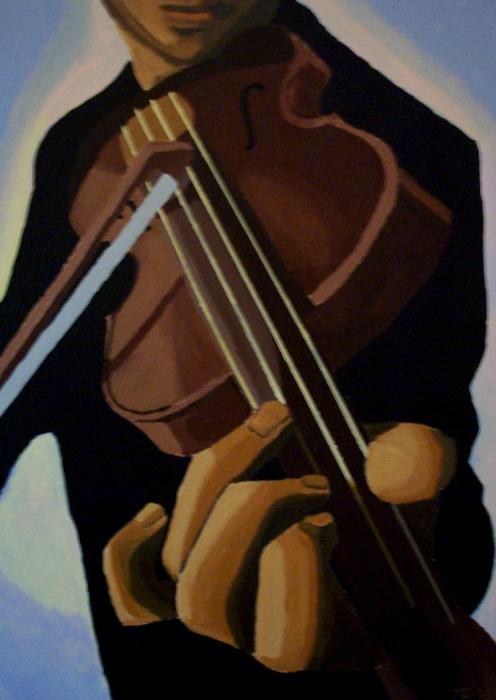How is Your World Labeled?
I was destined to be a child psychologist. I did my Research Fellowship
in Child Development and was heading into a Ph.D. program in Human Behavior and
Development - and then I had a change of mind.

I lived
in Kansas at the time, and my husband Rich was getting his Ph.D. in Medicinal,
Bio and Pharmaceutical Chemistry - and I took a job at the Bess Stone Center, a
Center for Mentally Disabled Adults. On my first day at work, I was introduced
to Larry, a 24-year-old
mentally challenged adult. He was very tall and thin.
Perhaps the most striking feature of his appearance was the wide suspenders that
held up his pants. His teeth protruded and his head was over-sized.
"His
name is Larry," Mary Jean said to me. "He is 24 but has the mind of a
2-year-old." He doesn't talk. He just grunts. As she spoke those words, his
head tilted, and I immediately knew he understood her harsh words. Larry looked
different, and even though his outward appearance was unusual; I was about to
learn that there was much wisdom beneath his surface.
Larry,
who did not possess the ability to communicate through words, put
his talents to work. He made an invention by inserting the 'foil' from the
inside of a ketchup bottle top into a clothespin. Larry could gaze into the
small foil 'rear view mirror' for a fully encompassing view of the world. He
used his invention to watch the man who came to polish our floors
once a week. Larry watched the up-and-down motion in his 'rear-view' mirror, and
once his mind mapped the rhythm he was able to imitate floor polishing even when the
polisher was not there.
I
asked him if he wanted to 'try it' and sure enough, Larry polished the floors
everyday and became the best floor polishers ever. Then he took me outside and
motioned with his arms that he wanted to polish the grass. After it clicked in, I
realized he wanted to transfer his new found skills to learn to mow the grass. And
he did. He became the best grass mower we had ever seen!

Larry's
energy and passion for learning became contagious. Soon enough, everyone at the Bess Stone Center became
alive in a new way. Bertha wanted to play the piano, and she did, in her own
way. Albert wanted to have 'money in his pocket' and so Mary Jean gave him
money to carry to the store for food shopping. Mark wanted to build a house,
and so we gave him some wood to build a miniature house which upon its
completion was donated by the Bess Stone Center to its 'sister home' for
mentally disabled children. The local newspaper heard about the change at Bess
Stone and wrote a feature story, which greatly inspired our small town in
Kansas.
Larry
taught me about trust. Rather than see him as a 'retarded adult' with no
capabilities to do much of anything, I saw him as a whole, creative human
being. At the movement of contact, I experienced him as someone special,
someone I wanted to get to know and understand, and someone of value. Larry changed my life. He was one of the
reasons I wanted to understand more about how our minds work, how our brains
work, and why we do what we do.
Music to Your
Ears
 We can acquire wisdom from everyone.
We can acquire wisdom from everyone. A man sat at a Metro station in Washington, D.C. and
started to play the violin; it was a cold January morning. He played six Bach
pieces for about 45 minutes. During that time, since it was rush hour, it was
calculated that thousands of people went through the station, most of them on
their way to work.
Three minutes went by and a
middle-aged man noticed there was musician playing. He slowed his pace and
stopped for a few seconds and then hurried on to meet his schedule.
A minute later, the
violinist received his first dollar tip: a woman threw money into the till and
without stopping, continued to walk.
A few minutes later, someone
leaned against the wall to listen to him, but the man looked at his watch and
started to walk again. Clearly, he was late for work.
The one who paid the most
attention was a 3-year-old boy. His mother tagged him along, hurried but the
kid stopped and looked at the violinist. Finally, the mother pushed hard, and
the child continued to walk, turning his head all the time. Several other
children repeated this action, yet all the parents, without exception, forced
them to move on.
In the 45 minutes the
musician played, only six people stopped and stayed for a while. About 20 gave
him money but continued to walk their normal pace. He collected $32. When he
finished playing and silence took over, no one noticed it. No one applauded,
nor was there any recognition.
No one knew this but the
violinist was Joshua Bell, one of the best musicians in the world. He played
one of the most intricate pieces ever written with a violin worth 3.5 million
dollars.
Two days before his playing
in the subway, Joshua Bell sold out at a theater in Boston, and the seats
averaged $100.
This is a real story. Joshua
Bell played incognito in the Metro station and was organized by the Washington
Post as part of a social experiment about perception, taste and priorities of
people.
Think about the labels that frame your world - narrow
your appreciation, and stop you from seeing others through a lens of their
strengths.
- How
do labels influence you?
- What
do you perceive and why?
- Do
you stop to appreciate what is going on around you?
- What
blinds you? What influences your sense of reality?
- Do
you recognize the talents of others in an unexpected context?